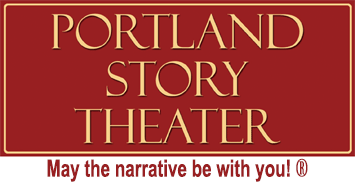Portland Story Theater’s love affair with storytelling began as a story circle in the living room. Every month, a group of story lovers gathered together to share their stories. In 2004 Portland Story Theater produced its first performance at CoHo. We went on to perform at Hipbone Studio, The Alberta Abbey, The Alberta Rose, The Fremont, The Old Church, and Nordia House. We also took our Urban Tellers shows On The Road to bring our unique brand of storytelling to the far corners of Oregon, and took our Armchair Adventurer series to the East Coast of the USA and to Europe.
Portland Story Theater’s work has always been to advance, inspire and expand our community narrative, one story at a time – and in doing so, preserve and promote the ancient art of storytelling in a way that enriches modern life, allowing and encouraging people to be vulnerable and present in ways that are crucial to the full expression of our humanity.


